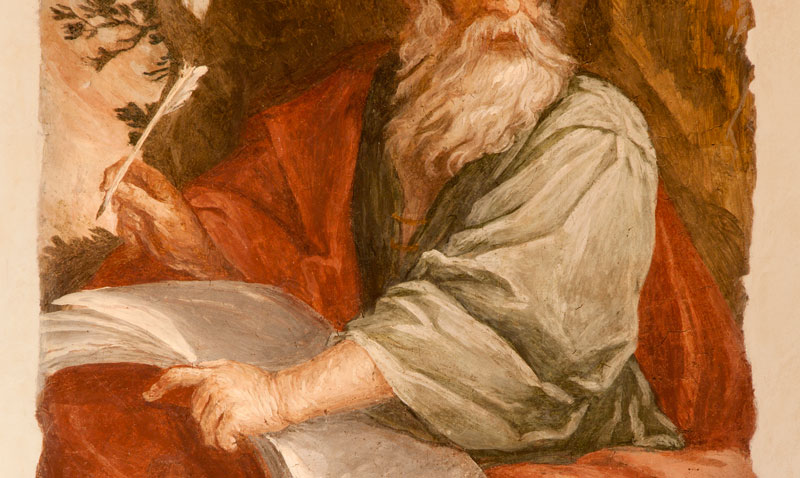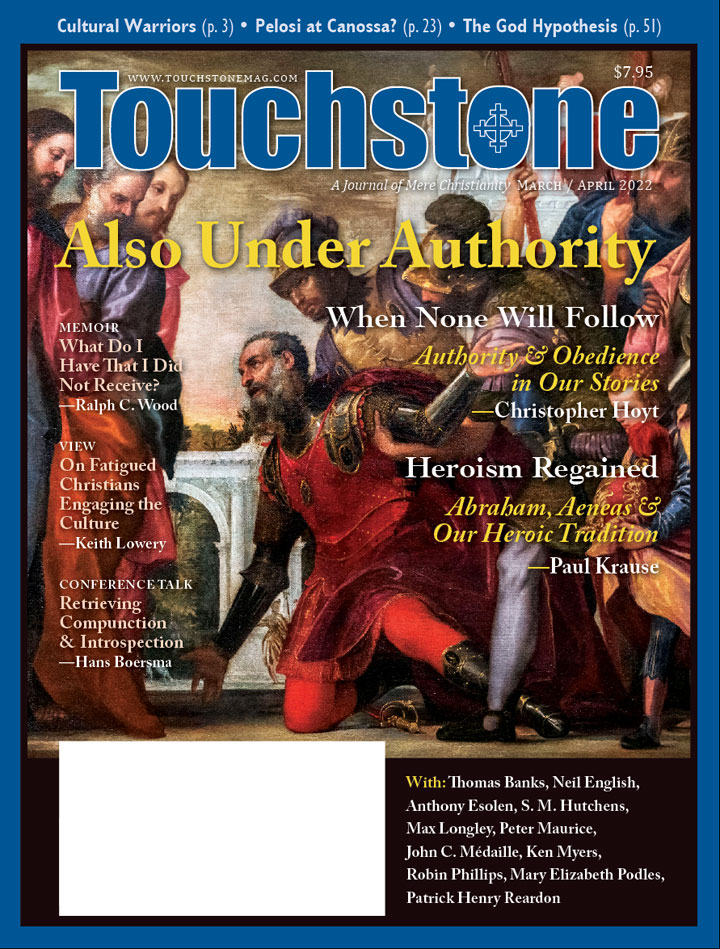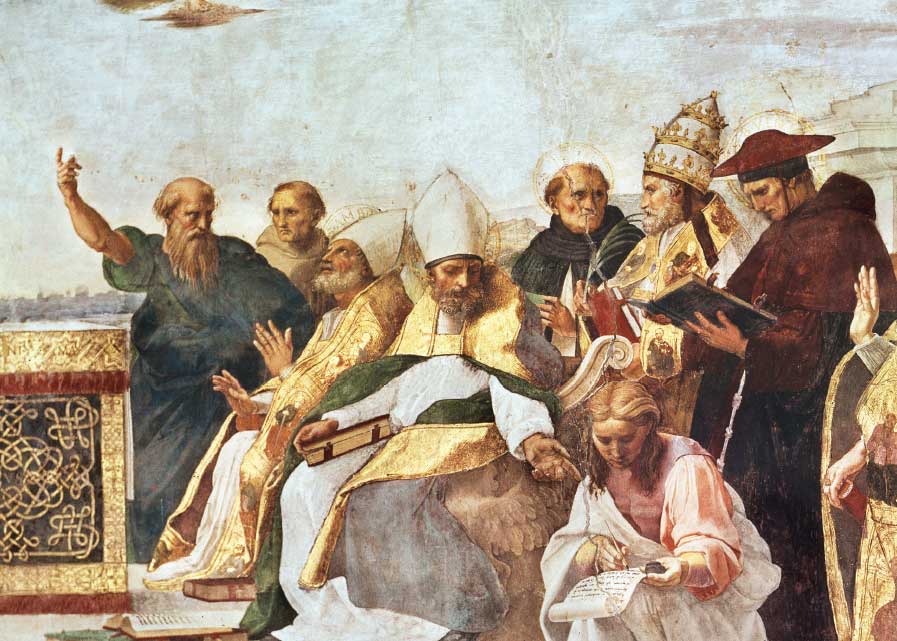Let's Talk About Sin
Retrieving Compunction & Introspection
I want to talk with you about sin. People always talk about sin, but typically we find it easiest to talk about the sins of others and about sins that are corporate—social ills of one kind or another. I suspect one of the reasons we don't mind talking about social justice is that it keeps the gaze away from ourselves. I won't be talking either about the sins of others or about social ills. Not that they're not real or unimportant; it's just that they're not neglected. We talk lots about them, sometimes too much. But talk about our own, personal sins is something I think needs retrieval, for if anything is neglected in our secular age, it is personal sin. Introspection has obtained a bad reputation also among theologians who, like Krister Stendahl and others, chastise the so-called "introspective conscience of the West."
We've become suspicious of forebears like Augustine and Anselm, for we have learned to begin theological talk with Christ—that is to say, with grace and forgiveness—since we see the character of God most clearly in Christ. Let me say up front that theological talk should begin with Christ. He is the Alpha and the Omega, the Beginning and the End. We do see the face of God sacramentally in Christ.
Still, I'm going to make a plea for a retrieval of sin, a theology of personal sin that through compunction and introspection yields purification and healing. Beginning with Christ means beginning with grace. But, as I hope to make clear, this grace involves recognition of how unlike Christ we are, so we may become more like him, being renewed in him. The introspection for which I want to make a plea is not without pain. But when it comes to hamartiology (the doctrine of sin), the saying holds true: no pain, no gain.
Our retrieval of sin is going to take the form of a retrieval of well-known spiritual writers—their talk about sin. We'll learn from them what it means to turn inward, there to see the wounds that fester, so they can be healed by the divine physician.
Compunction: Joyful Sorrow
It is divine revelation—God in Christ, biblical words—that leads to the compunction or grief over sin that I want to discuss. Words often involve violence and pain. Writing—reflecting, I think, the healing pain caused by the Word—used to be a rather physical, violent activity. Mary Carruthers's description of how writing functioned in the premodern world may be somewhat unnerving:
We should keep in mind the vigorous, if not violent, activity involved in making a mark upon such a physical surface as an animal's skin. One must break it, rough it up, "wound" it in some way with a sharply pointed instrument. Erasure involved roughing up the physical surface even more: medieval scribes, trying to erase parchment, had to use pumice stones and other scrapers. In other words, writing was always hard, physical labor, very hard as well on the surface on which it was being done; this vigorous physical aspect, I believe, was always part of that master-model of memory as a written surface. (The Craft of Thought: Meditation, Rhetoric, and the Making of Images, 400–1200, Cambridge University Press, 1998)
In our age of computers, we tend to forget the harsh and laborious character of writing throughout most of history. Carruthers's phrase "memory as a written surface" makes the point that not only was writing a rough, physical activity, but reflection upon the Word—meditation or memorization—was, too. Technology may have made writing easier, but meditation hasn't lost its demanding character.
The "wounding" of the parchment that Carruthers mentions is matched by a "wounding" of the mind in reflection or meditation upon divine revelation. In other words, it is not just writing but also the reading of words that can be painful. The word compunction gives us a sense of just how painful the processof reading can be. The Latin term compunctio speaks of the reader being painfully "pierced" in confrontation with the text. The language of compunction comes from the Latin pungere—to pierce or puncture. What biblical reading does—if we do it as it is meant to be done—is to violently pierce the core of our being.
The monastic writers took the term compunctio from the book of Acts. When Peter finished his Pentecost sermon, the people who heard it "had compunction in their heart"—compuncti sunt corde in the Vulgate (Acts 2:37). Contemporary versions often translate that they were "cut to the heart." Compunction means that being confronted with God's revelation in Christ is painful in character. Perhaps the primary and most difficult cost of discipleship is the pain of compunction over personal sin. This is not to say that compunction is simply about morbid introspection. Contemplation, joy, and peace are the result. And it is not always and only sin, but sometimes also joy that pierces the heart. Either way, the heart must be pierced for God in Christ to heal us and for usto reach our desired end.
Hans Boersma is the Saint Benedict Servants of Christ Professor in Ascetical Theology at Nashotah House Theological Seminary.
subscription options
Order
Print/Online Subscription

Get six issues (one year) of Touchstone PLUS full online access including pdf downloads for only $39.95. That's only $3.34 per month!
Order
Online Only
Subscription

Get a one-year full-access subscription to the Touchstone online archives for only $19.95. That's only $1.66 per month!
bulk subscriptions
Order Touchstone subscriptions in bulk and save $10 per sub! Each subscription includes 6 issues of Touchstone plus full online access to touchstonemag.com—including archives, videos, and pdf downloads of recent issues for only $29.95 each! Great for churches or study groups.
Transactions will be processed on a secure server.
more on Christianity from the online archives
more from the online archives
calling all readers
Please Donate
"There are magazines worth reading but few worth saving . . . Touchstone is just such a magazine."
—Alice von Hildebrand
"Here we do not concede one square millimeter of territory to falsehood, folly, contemporary sentimentality, or fashion. We speak the truth, and let God be our judge. . . . Touchstone is the one committedly Christian conservative journal."
—Anthony Esolen, Touchstone senior editor













